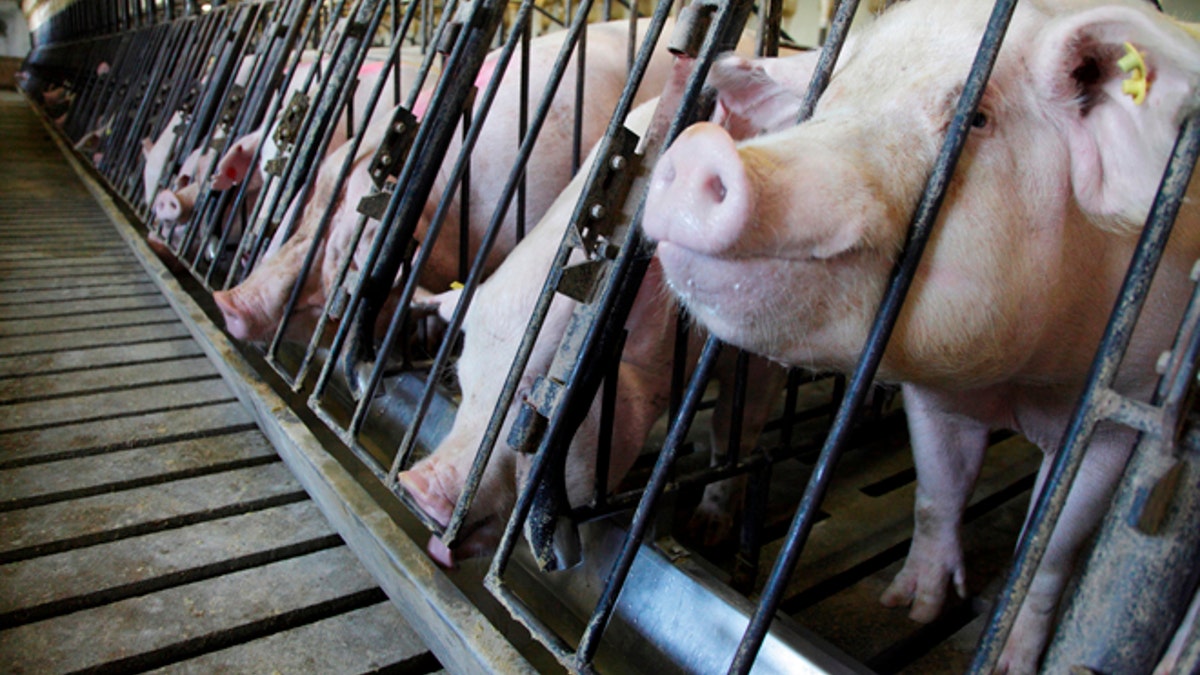
Pigs feeding at a farm in Indiana. (REUTERS/John Gress)
U.S. researchers have identified a new strain of a hog disease that has wiped out millions of baby pigs, a sign the virus will keep mutating as producers work to contain it.
A third strain of Porcine Epidemic Diarrhea virus, or PEDv, was detected in a Minnesota hog herd and found to be at least as virulent as an original strain that emerged in the United States in early 2013, said Douglas Marthaler, assistant professor of veterinary population medicine at the University of Minnesota, on Monday.
Marthaler, who reported on the strain last month in a journal from the U.S. Centers for Disease Control and Prevention, believes the strain is a mutation of the original. A second, less-virulent strain had previously been identified.
The original strain may have mutated in response to increased immunity in herds, Marthaler said. It is also the nature of viruses like PEDv to evolve as they replicate.
"The virus is always changing," Marthaler said.
PEDv has killed at least 8 million pigs, roughly 10 percent of the U.S. hog population, in the past two years. The pork supply reduction was largely responsible for pushing prices to record highs. It is unknown how the virus, which causes extreme diarrhea in piglets, came to the United States. It was previously found in parts of Asia and Europe.
The impact on hog production from the emergence of the new strain, which was first identified last year, is unclear. It could have existed in the United States without being detected since early 2013 or could be a new mutation, experts said. It is unknown whether the third strain even exists outside of the Minnesota herd in which it was found, Marthaler said.
Hog producers need to take the same precautions to prevent the new strain from spreading as they did for the previous two strains, including washing trucks and other equipment.
Researchers previously determined that PEDv can spread from pig to pig by contact with manure, which contains the virus. It can also be spread from farm to farm on trucks.
"Whether or not exposure to one of the earlier strains provides protection against this strain, I don't think anybody knows the answer to that question," said Harry Snelson, a veterinarian who represents the American Association of Swine Veterinarians.
PEDv is not a threat to humans or food safety, according to the U.S. Department of Agriculture.
